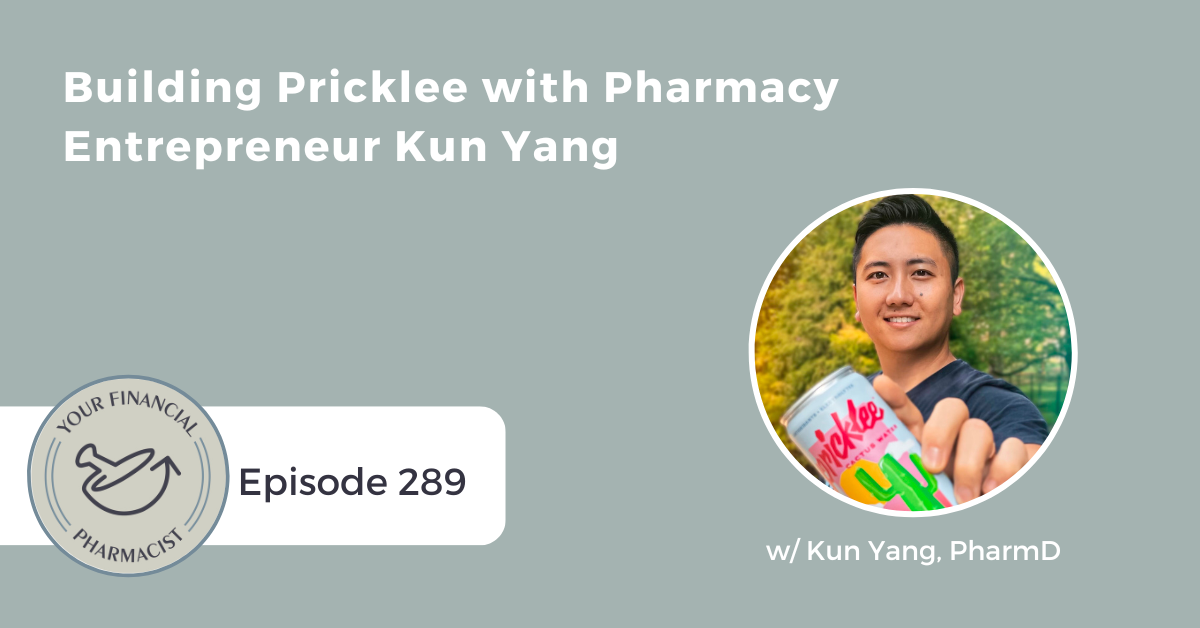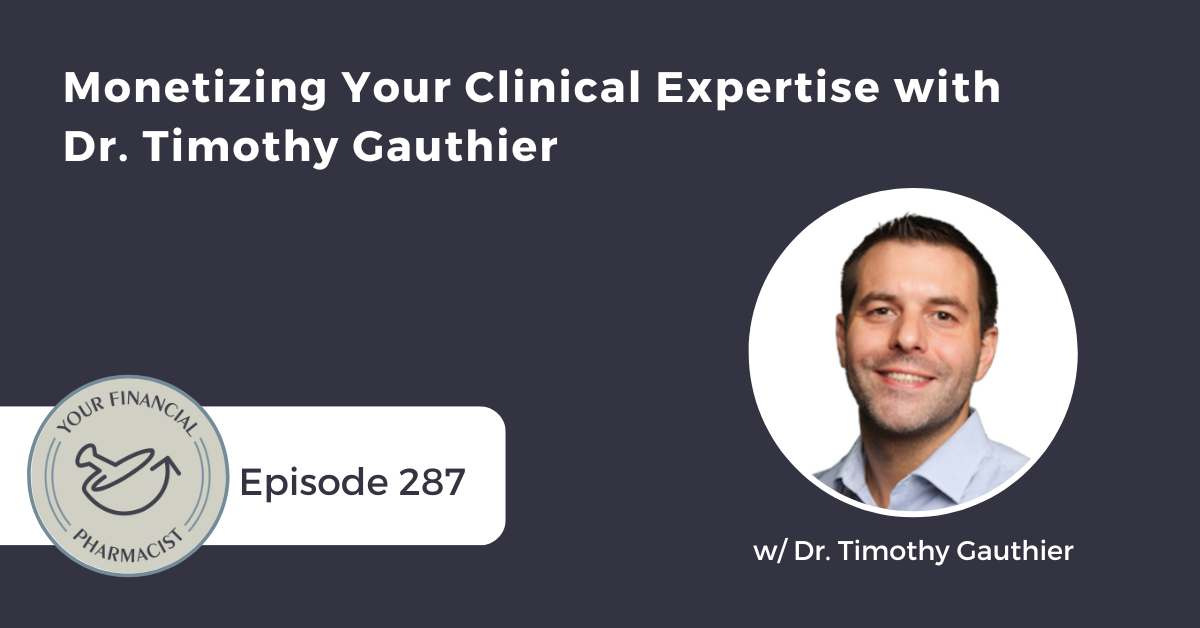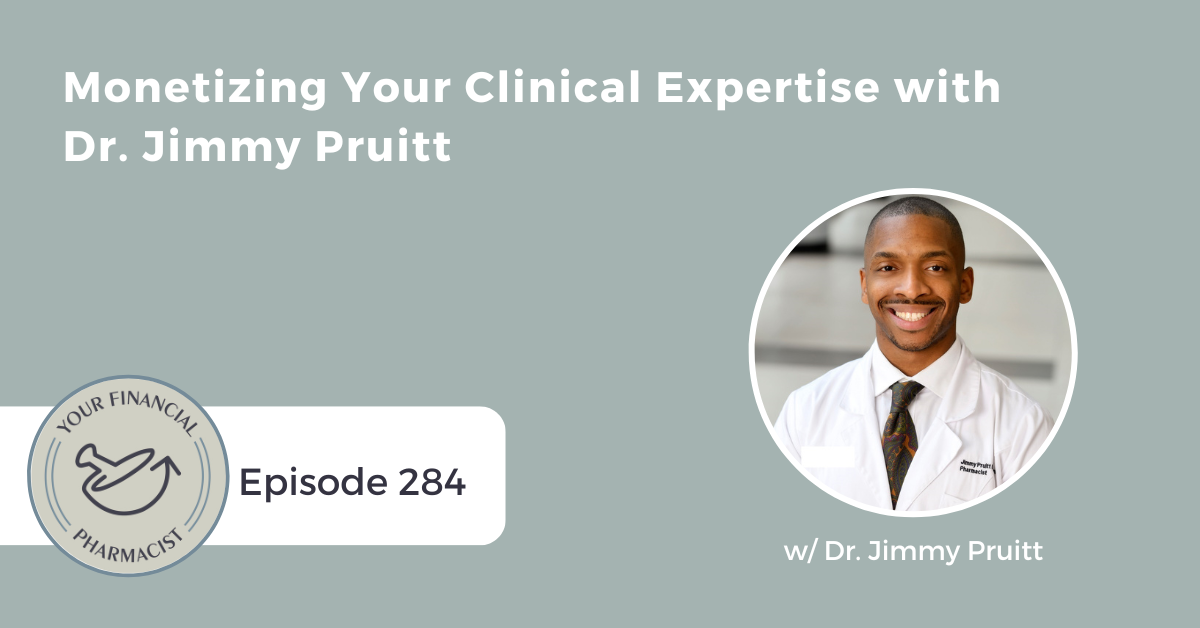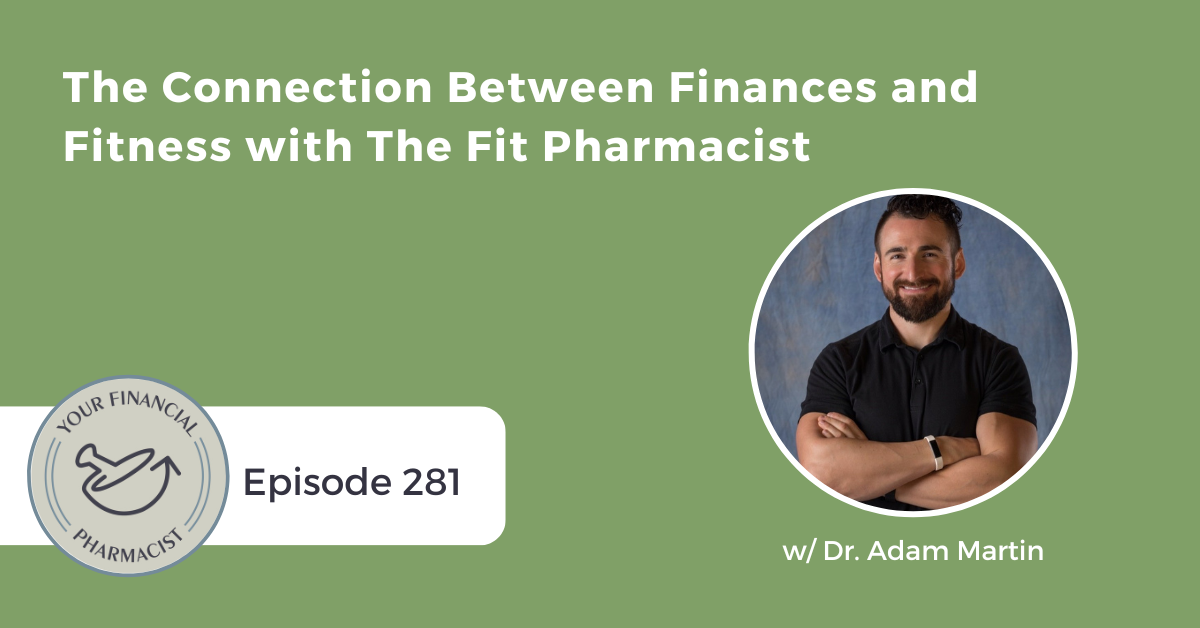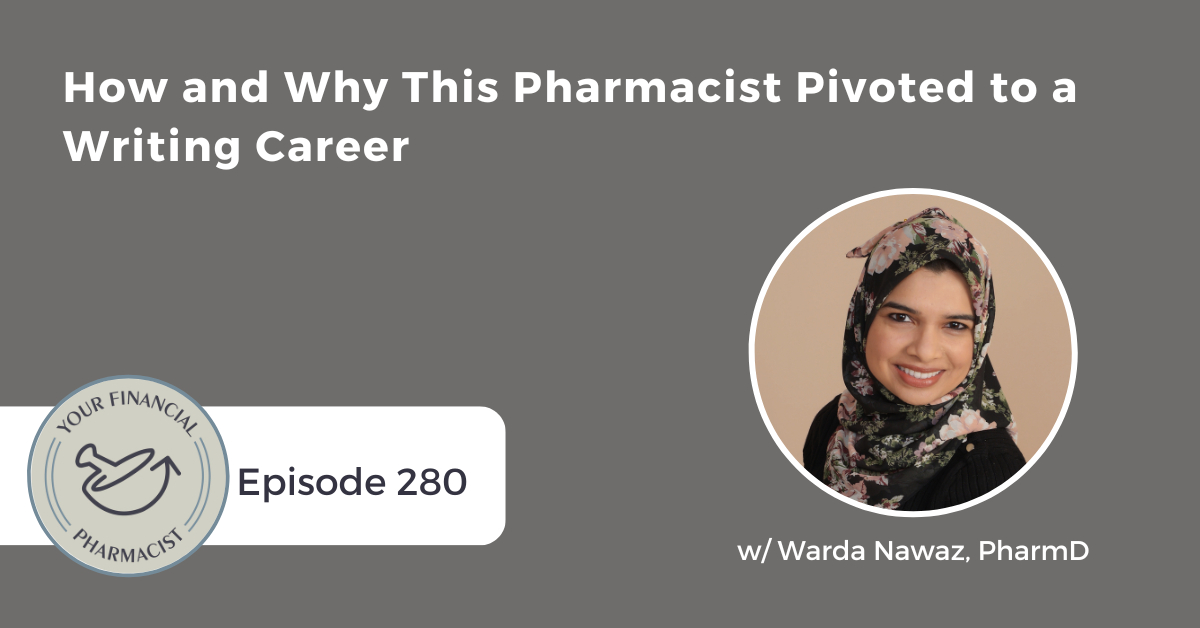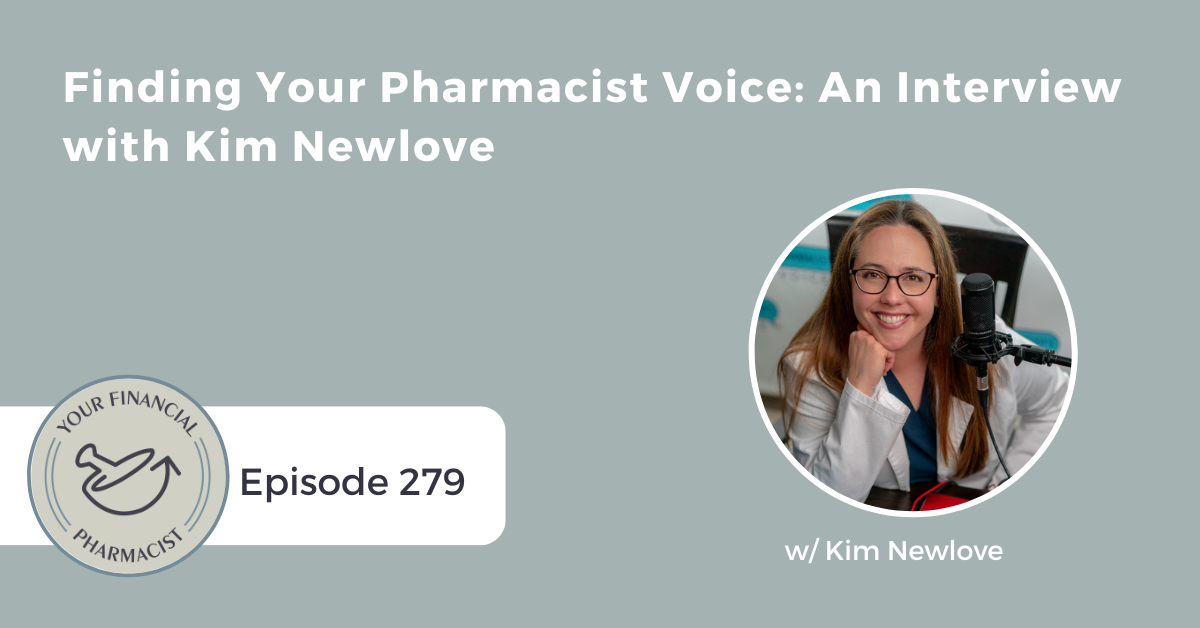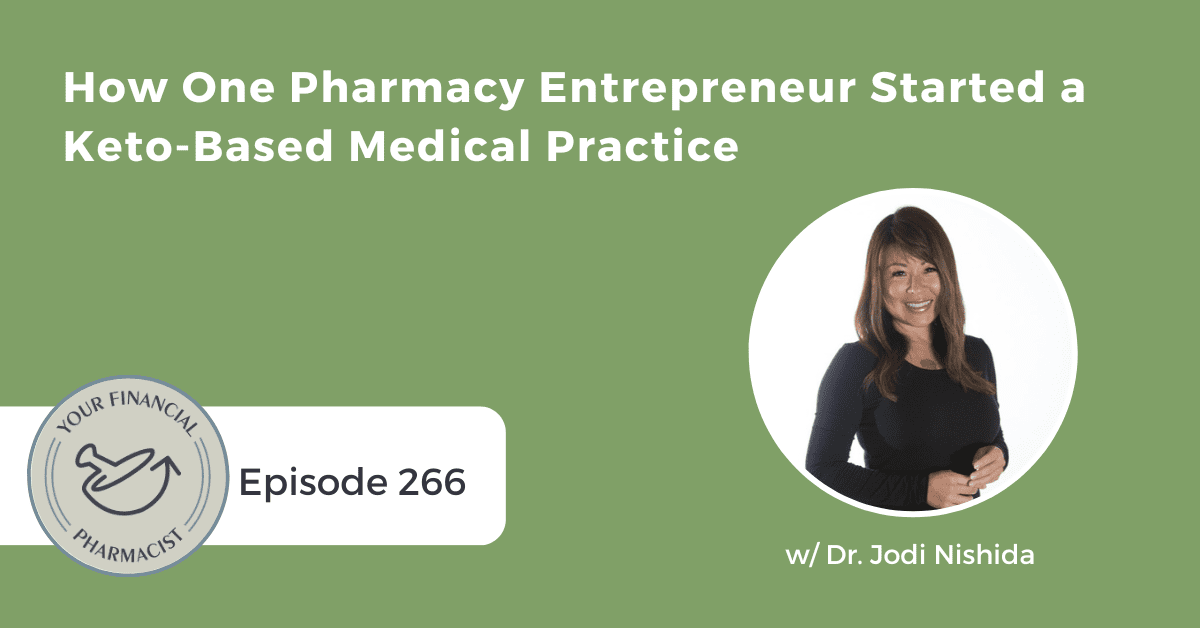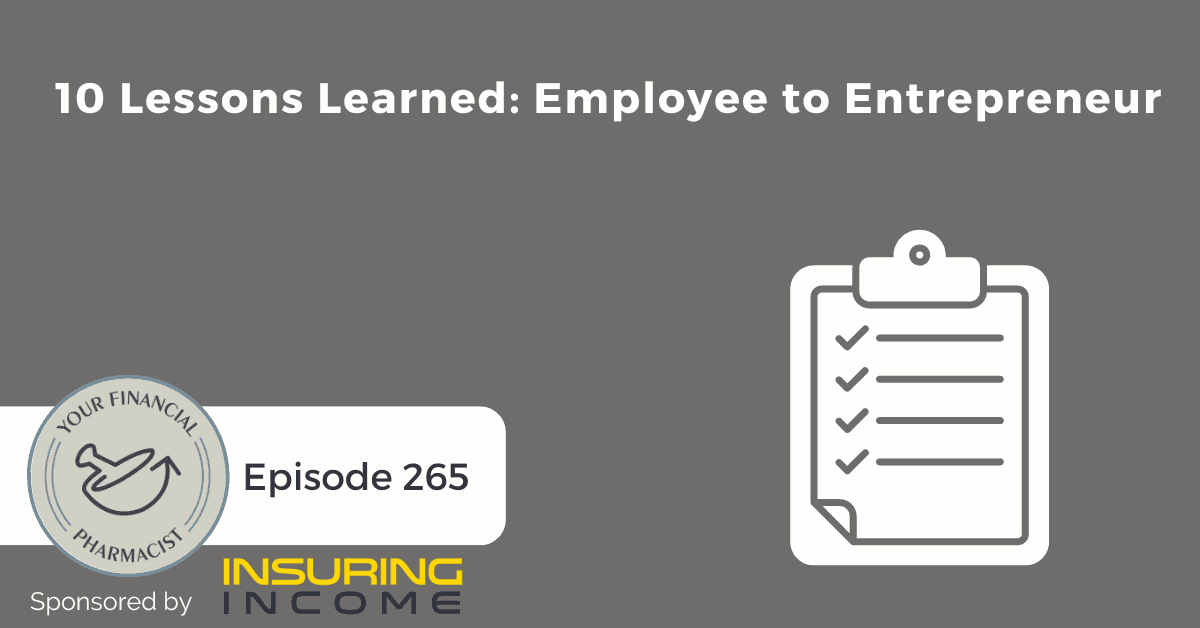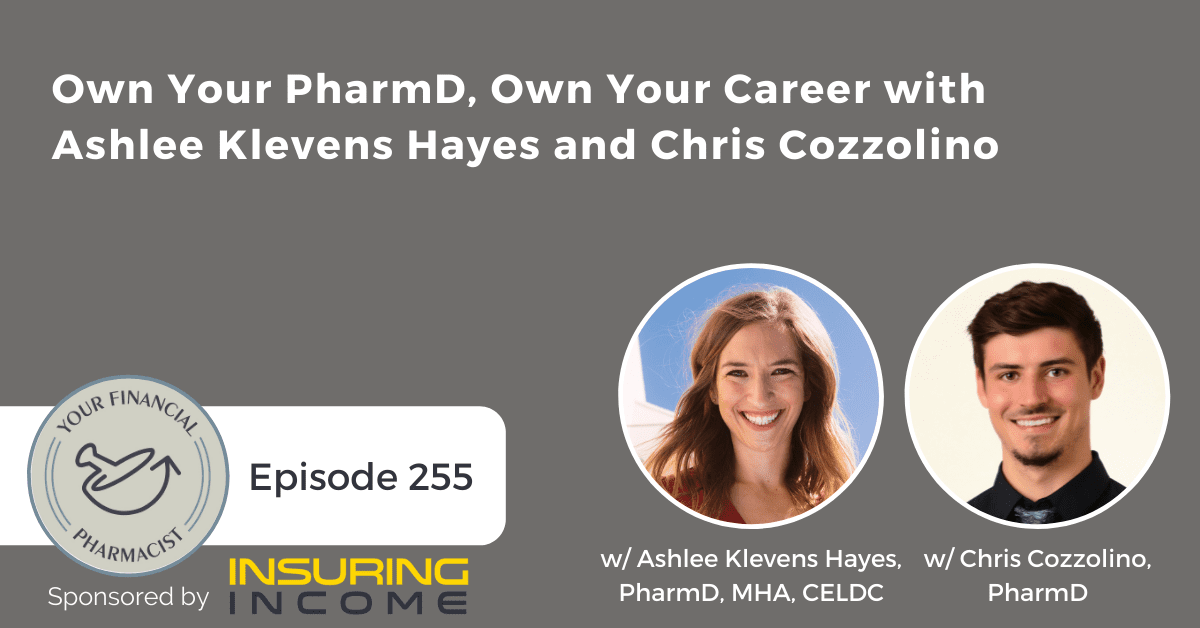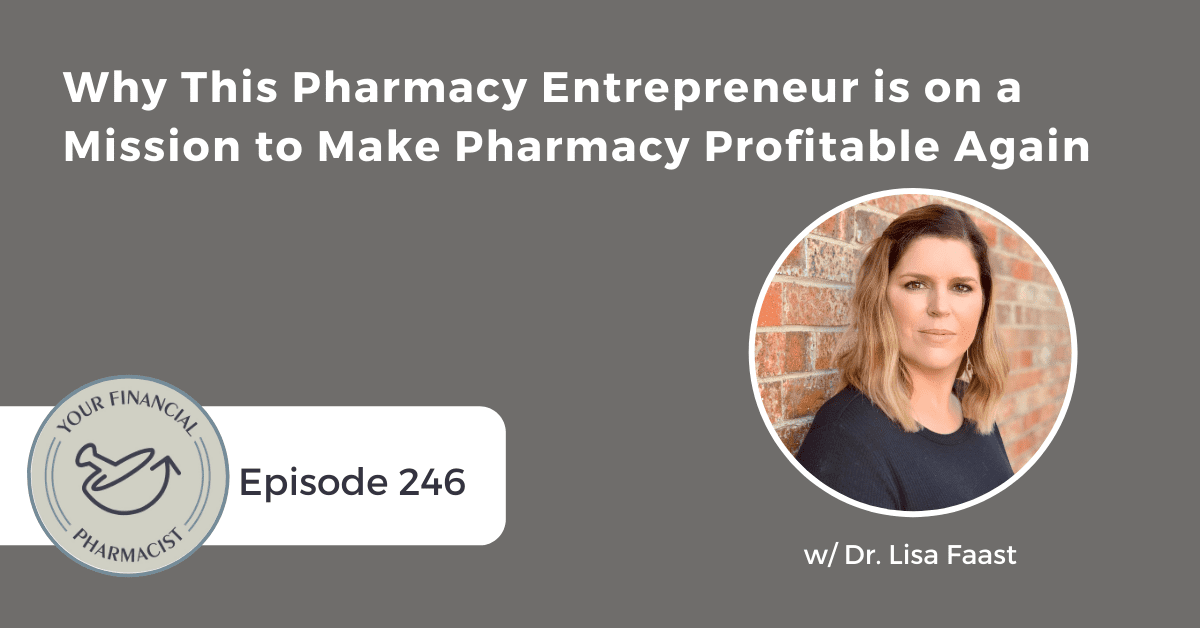Kun Yang, a pharmacist and Co-Founder & CEO of Pricklee Cactus Water, shares how and when he knew the entrepreneurial path was right for him. In this episode, he discusses the experience of being on Shark Tank, where he effectively navigated a negotiation with two sharks that led to a deal, and the most important skills he has had to acquire as an entrepreneur leading a growing company.
About Today’s Guest
Kun Yang is a recent dad and pharmacist-turned-CPG entrepreneur. He grew up in Canada but has spent his professional life in the United States, where he is building his business, Pricklee Cactus Water, with some incredible humans who want to make the world a better place.
Pricklee is on a mission to inspire people to be resilient like the cactus through health, happiness, and sustainability. The refreshing cactus waters are made from the drought-tolerant prickly pear cactus and packed with antioxidants, electrolytes, and vitamin C, with 50% less sugar than coconut water. It’s 100% refreshing, with 0% pricks.
Kun is passionate about brand building, CPG, leadership, founder stories, futurism, mental health, and all things wellness. He looks forward to connecting and learning from others that build businesses through conscious capitalism!
Episode Summary
This week on the YFP Podcast, YFP Co-Founder & CEO, Tim Ulbrich, PharmD, welcomes fellow pharmacist and Co-Founder & CEO of Pricklee Cactus Water, Kun Yang, to the show. Highlights from this episode include hearing Kun talk about how and when he knew that an entrepreneurial path was right for him, the experience of being on Shark Tank, and the skills he has had to acquire on his entrepreneurial journey leading a growing beverage company. The discussion begins with Kun sharing his start in pharmacy, his pharmacy education, the moment he realized that a traditional pharmacy path might not be right for him, and the surprising story of how he got started as an entrepreneur. Kun speaks on how Pricklee came to be, his experience navigating negotiation with two sharks on Shark Tank, and ultimately getting a deal for Pricklee. With the added attention from the show, Kun shares how Shark Tank positively impacted the business in unexpected ways. He discusses the power of having a mentor, the skills needed to be a true leader, how he views leadership, and how he is cultivating a culture of growth in his company. Listeners will also hear an interesting parallel between parenting and entrepreneurial leadership.
Links Mentioned in Today’s Episode
- YFP Planning: Financial Planning for Pharmacists
- Schedule a free Discovery Call with YFP Planning
- Pricklee Cactus Water
- Shark Tank US | Barbara and Kevin’s Prickly Fight Over Pricklee Product
- Hangry: A Startup Journey by Mike Evans
- Shoe Dog: A Memoir by the Creator of Nike by Phil Knight
- Brian Scudamore: Founders Stories Podcast
- Never Split the Difference: Negotiating as if Your Life Depended on It by Chris Voss
- Connect with Kun Yang on LinkedIn
- Your Financial Pharmacist Disclaimer and Disclosures
Episode Transcript
[INTRODUCTION]
[00:00:00] TU: Hey, everybody. Tim Ulbrich here, and thank you for listening to the YFP Podcast, where each week we strive to inspire and encourage you on your path towards achieving financial freedom.
On this week’s episode, I welcome fellow pharmacist and the Co-Founder and CEO of Pricklee Cactus Water, Kun Yang. Highlights from the show include hearing from Kun about how and when he knew the entrepreneurial path was right for him, what the experience was like being on Shark Tank, where he effectively navigated a negotiation with two sharks that led to a deal, and the skills that he has had to acquire that have been most important to his entrepreneurial journey and leading a growing beverage company.
Now, before we jump into today’s show, I recognize that many listeners may not be aware of what the team at YFP Planning does in working one-on-one with more than 250 households in 40-plus states. YFP Planning offers fee-only high-touch financial planning that is customized to the pharmacy professional. If you’re interested in learning more about how working one-on-one with a certified financial planner may help you achieve your financial goals, you can book a free discovery call at yfpplanning.com. Whether or not YFP Planning’s financial planning services are a good fit for you, know that we appreciate your support of this podcast and our mission to help pharmacists achieve financial freedom.
Okay, let’s jump into my interview with Kun, the Co-Founder and CEO of Pricklee Cactus Water.
[INTERVIEW]
[00:01:20] TU: Kun, welcome to the show.
[00:01:21] KY: Glad to be here, Tim. Nice to see you again.
[00:01:23] TU: So we had an interesting crossing of paths through a mutual connection in the biopharmaceutical industry space, where we’ve done some personal finance education with some of the fellowship programs. You spent the early part of your career, before working on Pricklee, in an industry role. So let’s start there. Tell us about your career path into pharmacy, where you went to school, and what led you to going down that path of industry.
[00:01:50] KY: Yeah. So I graduated from the University of Maryland School of Pharmacy 2015. I have a lot of pride in my alma mater, and I think many people might relate to this. But it’s almost like the further removed you get, the more you realize how lucky really you were in that situation. But I had a chance to kind of go back this past year as the white coat speaker, and it just brought back a flood of just really incredible memories and just appreciation for just how difficult it is to be faculty and kind of lead the next generation of youth and just had a lot of proud moments to kind of know where we kind of came from in that space.
But I kind of grew up all over the place. I mostly grew up in Canada, and I always knew that I wanted to pursue health and wellness and many different components and also had a very, I guess, just entrepreneurial mindset to begin with. So I think pharmacy really kind of attracted me because fundamentally so much of pharmacy as an industry has been built upon independent business. Just the kind of skills that are required to be successful, to be able to socialize, to connect with your patients and provide value and help them lead healthier and better lives and be that trusted partner really kind of just gravitated to that profession.
As I entered pharmacy school, I think I realized that there was a lot of different ways that we could make an impact in society. Over time, as I learned more and more about all the incredible opportunities to affect population health and take all the skills that we were getting in pharmacy school and apply them in really creative ways, yeah, I just naturally gravitated towards more “nontraditional” roles. But I would just say that they were just roles that I think allowed us to flex additional skills that we didn’t know we had, and then eventually ended up pursuing a fellowship through MCPHS at Biogen in a sort of medical value-based outcomes type program, which is sort of a managed care-focused direction because I was very involved with AMCP and was very interested in the whole population, health management piece of that profession, going into graduation. Then through that, just really found myself appreciating and just developing a lot of incredible skills in the biotech pathway.
[00:03:57] TU: You and I talked maybe a week or two ago, and we’re talking about for those students that have that business or entrepreneur type of desire, I think the industry pathway is a natural one where there’s some exposure to that. But certainly, that’s still a step away from entrepreneurship and growing your own company, still a very different experience working within an organization, although, of course, less clinical and more business minded.
I’m curious, before we talk about Pricklee specifically, was there a moment during your fellowship or perhaps a moment in your first job where you looked around and you’re like, “Man, this just isn’t for me. I’ve got this entrepreneurial itch. I’ve got this pharmacy degree. Maybe I’ve been down this pathway, but like I don’t see myself doing this for 30 years.”
[00:04:43] KY: I think there were a lot of moments. When I look back, it wasn’t like I think one specific. I mean, I do have a specific moment that I’ll share, but I think there were a lot of feelings that I think that felt familiar to me, even in that moment, that I can kind of trace back and say, “Okay, this kind of makes a lot of sense.” So the moment really was walking into – I just finished our fellowship, and programming had started at a new company with a spinoff of our existing fellowship business. I kind of just walked in and had really, really fallen in deep appreciation for the opportunity and the people that I was working with.
But I think one of the days I kind of walked in, and I looked around, and this was still pretty early on in our journey, but something hit me that I had always thought that through all the different career changes and exploration of getting to that point that going this “non-traditional” path would have led me to move away from this feeling of “imposter syndrome” or feeling like everything that I was doing was actually getting more and more specific. It was because it was leading me to a point of clarity, right?
Really, over time, I realized that imposter syndrome and point of clarity had a lot to do with an understanding of who I wasn’t, as opposed to understanding of who I was. I think that’s something that probably a lot of us can relate to is growing up in your 20s and maybe sometimes early 30s, you have a lot of ideas of maybe what you don’t like to do, right? What are some of the things that don’t excite you? What are some of the general things that do excite you? But you may not really understand specifically why or what you’re really good at to allow you to succeed in those roles.
Again, all those feelings led to that one moment I walked in and looked around in this open office setting. I was kind of like, “Man, there’s a lot of incredibly talented and smart individuals around me. And if I work really, really hard here for another 15, 20 years, I can really be like one of them.” These were at the time, again, all my heroes I look up to that kind of forged the pathway for us before. I guess it hit me in that moment that there wasn’t a specific role that I could look at and say like that is exactly in specific what I wanted to do. I think that that was my – I call it a quarter life crisis moment of really all that imposter syndrome bubbling and kind of blowing up all at once, realizing that, wait a second, how could I have done all this and pursued all this specificity, only to feel this still in this moment? There’s not much more specificity I could pursue.
That was when it really kind of became an introspective question of like is there something outside of pharmacy that I could apply my skills to, still within the health and wellness space that we’re really passionate about, that I could find truth and clarity?
[00:07:17] TU: Where do you attribute – Obviously, you have an entrepreneurial spirit and desire. You’re pursuing that with the work that you’re doing at Pricklee, and I suspect this may not be the first venture and the last one that you’re going to do. Where do you attribute that entrepreneur spirit coming from?
[00:07:33] KY: It’s a really good question. I think it is family-driven in many, many ways, right? I’m a first generation American. My father actually immigrated over from China when I was one and then moved over to Canada when I was three and a half. To see kind of his journey and where he came from, where it was a small farm town that was – He was the first person in his entire family lineage to graduate high school and then did do college and all that stuff, and it wasn’t like there were resources around him.
So for him to kind of persevere and find a way through all that, pursue higher education, and then bring us over and provide, create a better life for his family, and then give us this opportunity then to live a really privileged life of education, of connectivity, of culture, of just growing up in North America, Canada, and the US, and really being shielded from a lot of that and realizing that, for me, a lot of the journey of getting to really, I guess, in many ways what I had initially idealize as the pinnacle of success, which was I think much more defined from a lower wealth generation value standpoint of like earning and salary and maybe comfort from a capitalistic standpoint. Getting to that point and realizing that it was much more than that, that was behind the growth that my father and sacrifices my father had made.
To look at that journey that he went on as a pretty entrepreneurial one himself, I think I got a lot of that same sort of mentality of like, okay, this still feels like the great opportunity has been presented. How can you take this opportunity and truly make a bigger impact? And take that opportunity and say if you have that privilege, and you have the connections and maybe the skill sets and the network to do more, to truly make an impact on society. Can you look introspectively and find authenticity in that journey to make that impact as positive and helpful as possible? So that’s really kind of where I think the initial energy came from.
[00:09:31] TU: I love that, Kun. One of the things I’ve been thinking about a lot lately, and I think your alma mater could give them some credit, is light years ahead in terms of a focus around entrepreneurship and nontraditional career paths. They put some specific efforts in that area to really be intentional and brand themselves as such. But I’ve often thought like we recruit for someone who wants to be a pharmacist and that clinical type of a mindset and then hope we can apply some entrepreneurial principles on top of that. I almost wonder if we need to flip the script in that like you recruit people that have an entrepreneurial mindset or interest, and then pharmacy gets overlaid on top of that. It’s just a totally different shift in how someone is thinking.
I think what’s interesting about your journey, and I think there’s a lot of people that may feel some of that imposter syndrome or feel that tug and pull of like, “Hey, I have an interest in this or that, but my identity is in I have a PharmD, or I’ve done a fellowship, or I’ve done two years of residency.” We know the reality of the sunk cost fallacy of, “Hey, I’m $200,000 in, right? And I’m not going to pivot or take that risk.” So I just think there’s a really neat opportunity for our academic institutions to be able to take this up and see what we can do in terms of some of the disruption that’s happening in our profession and how can we, especially as we train the next generation of pharmacists, be a part of that. I think to Maryland’s credit, they’re making some progress in this area, which is pretty cool.
[00:10:56] KY: I think that that’s a very, very, very astute point. I would just say like still early on in my journey, so I imagine that my view on this and perspective will change over time. But I would say that what I found in our in our journey, where we’ve kind of really broken into multiple industries now and almost from the bottom up and try to find value in that, it really comes down to aligning the journey to some core set of values that are intrinsic to an individual. I think that that’s something that a lot of institutions have maybe not done effectively. I think, obviously, professionalism, and I think core behaviors of what a profession should look and act like are definitely important.
But I do think that sometimes a lot of students come into these professions with personal values that are maybe extremely different, right? These personal values are often shaped by households and maybe by your initial friend network, right? I guess the challenge of this is then if most people are within this way of, this mindset of thinking you go through life, really kind of reflecting the same values that you’ve kind of been around since you were a kid, right? Your parents’ values and the friends that you’ve kind of grown up with.
It’s really hard to break free from that, right? Because as you get more and more within a bubble of people in terms of the work that you do, your interests become even more specific. The challenges that you own become more specific. It’s probably very hard for an average pharmacist to relate to like the challenges that a construction worker, for example, would relate to day-to-day. So naturally, these worlds don’t collide as often as you would see, right? So what does that really result in? That results in people finding answers to like these bigger questions of like how do we become more entrepreneurial? Or what can we do with our pharmacy professions?
They find answers amongst their direct community. Why is that challenging? Well, it’s challenging because a lot of people that go into higher education, they come from families where maybe their parents didn’t do this, right? Or maybe this is now a wealth generation they’ve entered making pretty healthy salaries, where their parents didn’t have that luxury, right? So what happens is you’re not asking maybe your reference point of like what success looks like is anchored to people that have never had the type of wealth opportunity that you do now. So to find answers to the questions that like, well, what’s next? If we’ve hit our milestones of getting your house or like having children and doing these things that seemed like, pretty far reaching milestones previously, and you’re starting to trend in that direction, where it’s pretty feasible, then you start thinking, “Well, what’s next right?” Then the answers often become, okay, invest your money, do these things, and grow your wealth.
Then simultaneously, alright, who else would you ask? You ask your friends and your colleagues, who, again, were raised by the same kind of parents that you’ve been around. So it’s really hard to get answers to these bigger questions of how do you make more out of the way that our institutions are set up when a lot of the influence of what the values are in society are really limited to the same influences and values that you were raised with, right? So what I found is when you want to answer a question as big as what’s next, ask people that have done those things. So a lot of the mentors that I’ve met in my life that have made these tremendous impacts, I mean, they’ve built and exited companies, global companies. They’ve done these things. Time and time and again, you start to realize that oftentimes the value system changes from one of just wealth creation to one where you start to realize that your wealth is really a set of tools that you can leverage to create value for others and to create not just a better life for yourself but for your profession, for people around you, for anyone, right?
I think as you meet more and more successful people that have gone through that journey, you really feel that, and it’s not only just really inspiring to see that that’s really what people stand for at the end of the day, but that that’s what the world and the universe tends to reward in the long term.
[00:15:04] TU: It’s such a great point, and I’m reading right now Hangry by the GrubHub founder. It’s a great book. It reminds me a lot of Shoe Dog. It’s another great read on kind of an entrepreneurial startup story, that one, obviously, of Nike and Phil Knight. But he talks about in the GrubHub journey like his initial goal was like do this thing to be able to pay off student loans. Then it gets to this point where he raises $31 million, and he gives up a stake of a company, and then it’s like, “Oh, wow. This got like really real. And, obviously, I’m now exceeding that goal, and there’s on to something else.”
Then, obviously, at some point, he exits what will be a multibillion-dollar company, and then he’s kind of asking this question of like, alright, that wealth and, obviously, paying off that debt was a very small goal that wealth was achieved. But like I’m trying to find my identity back of like who am I, what do I want to be, what do I want to be my legacy and my contribution.
So let’s shift gears and talk about Pricklee. For those that aren’t familiar with Pricklee yet, and I hope they will become soon, if they’re not already or they haven’t tried the product, what is it, and how did the idea come to be?
[00:16:07] KY: Yeah. No, it’s definitely an interesting story. So Pricklee is a cactus water. It’s a delicious, refreshing cactus water made from really the most sustainable and resilient plant on the planet, the prickly pear cactus. It’s packed with electrolytes, antioxidants, vitamin C, that just offers superior and natural hydration. It’s about half the sugar and calories of a coconut water, and it’s really just good in smoothies by itself, mixed drinks, and really any which way you want to have it. So that’s really what Pricklee is.
We actually created Pricklee right in the middle, again, of our fellowship. Our co-founder, Mo, grew up in Lebanon, and his grandma used to make prickly pear mixed drinks, prickly pear just smoothies, prickly pear just hydration beverages all summer long. It’s his favorite thing going up with him and his siblings. So one day, when he was shopping at our local grocery store, and he saw prickly pears in the market, he was blasted with nostalgia. He’s like, “I have to bring this back to my friends.” So he shared it with us. We were just blown away by the taste.
Then being in health care, we look at the benefits. That was really, really interesting as well. I think over time, we just realized like this is such an amazing opportunity to take a health and wellness platform, introduce an ingredient that meant something, significant to one of us, and then find ourselves in this, and that journey of really discovering authenticity through the creation of Pricklee, and figuring out that we could leverage the platform of the cactus to inspire people to be resilient. To really promote health, happiness, and sustainability became really what our core mission was. Then over time, really that mission manifested itself into a company that we now are privileged enough to be able to support and to grow every single day.
[00:17:47] TU: So I want to talk about your Shark Tank experience. You and your co-founder, Mo, also a pharmacist, appeared on Shark Tank, season 13, episode 22. We’ll link to it in the show notes, if folks want to go back and watch it. You were looking for $200,000 for 5% equity, which equates to a $4 million valuation. I want to talk about the numbers. But first, I want to hear about the experience. What was it like walking through those doors, and how did you prepare for that opportunity? Because as I’ll ask you in a moment, there were some instances in your responses with the sharks that it was clear you had done a lot of preparation. So I’m curious to hear how you went about that preparation.
[00:18:28] KY: Yeah. So we’d spent almost two years just sort of beta testing our product at farmer’s markets, figuring out how this whole industry worked. It was really, really something that just blew our minds because of how complex the industry was and the different aspects that went into it from D2C e-commerce, to retail, to supply chain, to operations, to production, to sales and marketing. I mean, there’s just so much to uncover, and it took us some time to really grapple around that. So we didn’t launch until February 2021.
Something to note of that is, I think, pharmacists and STEM individuals, specifically, are fantastic entrepreneurs because testing is so ingrained in our DNA. So we really went through it pretty – Really kind of taking our emotion out of it as much as we could. But in any case, we launched in February of ‘21. Within the first week, we’d run these Facebook ads and the production studio at Shark Tank, at SEMA, and these ads. So they reached out and were like, “Hey, you guys should apply.” We thought it was a complete scam. We had no idea this was real thing. But we pursued it. Next thing you knew, we had this gigantic application. It was like 40 pages. I mean, we were just spewing out all aspects of our life in this application.
This ended up being like a 16-month process from when we first [inaudible 00:19:44] to when we’d been filmed and then when we finally aired the following May. So it was probably the longest kept secret of our lives. When we started getting through the process, the team assigned us a production staff that really helped us kind of frame the pitch, prepare us for the kind of conversations that we’re going to have. A lot of that was just, again, an ongoing 16-month journey that eventually led to the air date on Mother’s Day weekend, actually May of 2022.
[00:20:15] TU: I’m curious. Yesterday, I was listening to a podcast of the founder of 1-800-GOT-JUNK?, and he had talked about a moment in their business, which it took them eight years to get to a million dollars in revenue, and now they’re north of $600 million a year. So a very patient slow growth and then, obviously, more of an explosion of that over time. But he talked about this instance where, after a lot of persistence, they got on to Oprah, a huge opportunity, couldn’t hire enough people to have the phones ready after that went live. But they didn’t have a same experience when they went on The Ellen Show. It was actually very quiet after that, and part of that had to do with, obviously, people can more easily get in touch now than they could when they went back on a previous show with Oprah.
But I’m curious how defining of a moment was that? Or was that not in terms of that goes live, and the business changes?
[00:21:07] KY: Yeah. I mean, I definitely think it was it was a defining moment. I think a lot of companies find a lot of luck in different components. You kind of have to. I mean, timing luck, it’s in every company’s journey. Shark Tank has manifested as one of those things for us, for sure. We had been on this like interesting media tour. Leading up to Shark Tank, we had actually filmed TODAY Show in August, right before we had filmed Shark Tank in September. That was a pretty big deal. I mean, Al Roker drinking your product on air. I mean, sharing your story. We got some texts about it. But it wasn’t comparable to the Shark Tank experience.
I mean, I think there’s something societally and culturally relevant about Shark Tank in the connection that every person has with that being like some pinnacle of entrepreneurship and a goal, and a milestone I think a lot of people will look for in starting businesses. So I think that there’s something innately exciting about it. Still to this day, anytime people see our booth, our materials, see us out in public with Pricklee, like we definitely get people being like, “Oh, we saw you guys on Shark Tank.” We always – The number of times we’ve had to tell the story of like, “What was that like?” It’s definitely something that we’re passionate about. But it was definitely one of those things where that was absolutely Shark Tank.
[00:22:23] TU: Not once. I don’t think not once did you or Mo mentioned that you were a pharmacist on that show. Was that an intentional move?
[00:22:30] KY: I think we actually did but –
[00:22:32] TU: Oh, did you?
[00:22:32] KY: Well, so the time that you’re in there is quite a bit longer than what actually gets aired. We think we’ve been there for almost 45 minutes. It was cut to eight. They did a really good job of actually representing the conversation and negotiate the intent of it. But, I mean, at the end of the day, I mean, they’re trying to put on a good show and trying to make it very, very snappy and quick.
It was funny. We had like a couple of our partners and friends actually fly in and put on cactus suits to like introduce the brand and the products, and that entire segment was cut out. So it was really funny. I mean, they were there. You saw them. But the whole dance sequence entrance, that was cut out. I guess they weren’t – I guess we just didn’t rehearse well enough, or like it wasn’t entertaining enough for dancers across the US. But, yeah, I know. We talked about it, I think, a couple of times. But definitely within the 45-minute segment, they cut that down to 8 minutes.
[00:23:22] TU: So one of the things Tim and I were talking about this, Tim, my partner at YFP last week, he does a lot of teaching on negotiation. One of the things that happened in the Shark Tank episode, at least, of the eight minutes that they filmed, is when Kevin – He went on this rant of, “I hate beverage deals. However, I like this product.” He ended up countering that. I think it was $200,000 for a 20% stake, instead of a 5% stake. Then you had a brilliant response, and you said something along the lines of how are we supposed to do that? Then you provide the rationale behind the how are we supposed to do that, in terms of needing the cash flow and so forth to grow and sustain the business, which is a textbook calibrated question or negotiation.
The book, How I Split the Difference, Chris Voss, he talks about this question precisely. So I assume you were prepared for that specific type of instance, where you had to negotiate. Was that fair?
[00:24:17] KY: Yeah. Yeah, absolutely. I mean, no Shark Tank deal goes on air and comes out the way that it was presented. It was kind of incredible how textbook the negotiation went to how we had prepared. We expected them to go to 20%. We expected Kevin in negotiation and then go to a royalty deal [inaudible 00:24:34]. Then our whole bottom line was going to be to offer the initial deal at a 5% line of credit. So the fact that it played out to a tee was just mind-blowing, I think, in terms of the preparation of that and to feel like we were actually in control of the entire conversation was pretty.
One of our first actual adviser, Patrick Muldoon, who’s the previous CEO of Zola Coconut Water and Detour Bar, an incredibly brilliant guy. He was the one that, to your point, brought up Chris Voss, How I Split the Difference. We read that. We kind of really prepared. What happens when this likely scenario occurs that somebody’s – Let’s say you left with one truck, and you have an offer, and it’s 20%. The fact that, again, happened at that exact moment was really funny. This is a guy who’s gone through so many tough negotiations in this life and I think can really speak to experience with it. Just he kind of coaches the same thing.
Like at the end of the day, when you’re in a tough situation, I think that the best thing to do is ask questions, right? There, you’re faced with an impossible situation or impossible task or ask, which oftentimes is the case with Shark Tank. These deals are impossible deals. Yeah. Yeah. Like you ask the question of like, well, lean into their expertise and experience and figure out what is it that they’re looking for? Oftentimes, that opens up the conversation from seeming like your back against the wall, no counter. This is the final offer on the last shark, to then turning that into an actual conversation where that results in negotiation. That’s absolutely part of the game.
[00:26:01] TU: It’s interesting seeing Barbara jump back in. I didn’t see that coming. Then I thought it was cool that you guys got caught a little bit in the middle for the benefit of at least the show, where there’s, obviously, an ego play going on between the two of them that she – So that was fun to watch.
[00:26:17] KY: Yeah. We were like, “Was this about us?”
[00:26:19] TU: Right. Kun, I’m curious that as your role expands, obviously, you’re leading a rapidly growing beverage company. I don’t think any schooling, including a PharmD program and even one that has more of an entrepreneurship focus, I don’t think any schooling can prepare someone for the work and the leading that you’re doing now. I’m curious, what what skills, if you had to pick one or two, we just mentioned negotiation potentially one, what skills have you really had to develop and hone that have proven to be most valuable to you in terms of leading this company?
[00:26:52] KY: Well, it’s hard to boil that down. So I would say if it really comes down to it, I think leadership is definitely the one that has been the most difficult for me because I think – I mean, I don’t know. I think leadership is often put together as this package of people in roles, in “leadership positions,” and that’s oftentimes rewarded. There’s often momentum built around that, right? If somebody tends to be active and speak up, this tends to happen. But you really realize over time that it’s really not about that. It’s really about how do you serve the people, your constituents, your workers, your partners, your friends, your customers, and your vendors, everyone that you work with.
Again, finding a voice of authenticity and a mission that’s so much greater than the product that you’re selling, ultimately, at the end of the day, and making sure that that’s an authentic mission and a set of value systems that really represents the people that are truly behind this company because the company really is just a journey. It’s really a journey of humans coming together, bringing their talents, introducing their networks of other talented individuals to come through. So at the end of the day, does the product really matter? Or is it really the people that come together and make it come to life? I really kind of believe that latter certainly to some extent.
But that was a really hard thing to understand. Because I think the skills that – Again, the leadership skills that are oftentimes rewarded in a corporate setting are oftentimes selfish and ones where it’s like what are you good at. You tend to see this too with a lot of individuals that when they find themselves in conversations with senior leadership, for example, which oftentimes isn’t the case in a corporate American setting, I mean, most of the time, it’s jockeying of position of like, “This is what I’ve done. This is how I’m effective. This is what I lead.” It’s like that doesn’t really provide a lot of value in your conversation, right?
I mean, the ultimate value, understandably, for any business is to move forward as a company because that improves everyone’s livelihood and, ultimately, your customers’ livelihood, right? So I think when you look at it in that macro, you realize it’s not about the individual. It’s about the bigger piece of like what are we all working for and realizing that the individual growth journey will actually lead to overall growth in the business. But, again, if you come from a place where you’re thinking about your specific role in that, as opposed to looking top down on how do you truly create and cultivate a culture of growth, it’s really hard to understand how to take yourself out of that and turn it the other way around and reflect all of that growth towards others, while still finding that your personal growth journey is actually felt that.
So that was a really, really extensive journey that I’m still on, and I think there’s a lot of the people in my team and partners have been extremely patient with me through that. That I would say has been the hardest, most emotionally intelligently challenging thing and process that I think I still undergo, and I still just – I’m so in awe of people that have mastered that, and I see how they bring them to home to their families too. That’s really, I think, what keeps me excited about the growth journey in that specific way.
[00:30:14] TU: I love what you just said there, and I think you can relate to this as a relatively newer dad. But I think parenting and entrepreneurship, at least in my own journey, have really forced some of the most significant inner reflection, which can be humbling and painful sometimes in the moment of like – My kids, I love them to death. But parenting exposes every limitation I’ve ever had that I was able to hide.
I think entrepreneurship can do the same. But I think if you lean into that, as I hear you are, it’s such a rich and rewarding journey of what are the opportunities to grow and to develop and flourish and to really think about some of these bigger questions of, sure, there’s going to be opportunity to build some wealth and create jobs and provide a really cool company and a product that’s awesome and tastes great. I can attest to that. My boys and wife can attest to that that have tried the product as well.
But it’s bigger than that, right? It’s bigger than that, and you’re already talking about that. I think that bigger than that also enhances the product, and it makes it attractive to people that are using it and the team that is behind that. It’s energizing when you have that type of a mindset.
[00:31:21] KY: Oh, my gosh. You hit the nail on the head. I mean, that same mentality when you apply it, to your point, I mean, having a kid, immediately put somebody significantly ahead of you in terms of priorities. That is what you have to do with entrepreneurship too, right? It’s really just not about you. It’s about the people that you serve. I think when it comes to product that you hit the nail on the head. I mean, as soon as we launched our product, we already knew that we were selling a product, and we had to find authenticity in our journey to express a brand, and that’s exactly what it was.
It just so happened that we had – I had my daughter in that really existential brand, soul searching phase. So it actually really helped us internalize like what it meant to feel empathy for consumers in that way and build a brand that really spoke to their needs, as opposed to a brand that we wanted to express ourselves. Then finding a common ground of authenticity so that when we build everything, it feels like a true genuine expression of self, as opposed to here’s a list of factors and characteristics of this product that you should buy into.
Sort of I think there’s a really interesting tidbit on that that I’d love to share, which is growing up in STEM, we were kind of taught to look at data and place data at a level of gospel sometimes, right? Where like the higher the end, for example, the more statistically significant, the more correct this data point ends up being. That is absolutely true, and there’s obvious logical science built into that way of discerning data. Then simultaneously, you do have occasional situations where a clinical trial may fail. Yet you have individual patients that may be cured of cancer. Does it necessarily mean that the product is not good? Or was it not tested in the right patients? I mean, you start to answer a lot of these interesting questions.
But the reason I bring that up is because this comes back to the value system of health care, which is it’s interesting. Because within healthcare, we’re tasked to be compassionate to care for our patients, and there’s sometimes like a disconnect with the way that we think about our jobs and the way that that happens. Because when you look at datasets, you look and you’re taught to think that the higher the data set, the more accurate, the more useful this information is, almost to the point where an N of 1 becomes tossed away as meaningless.
The irony is as we’ve built in our consumer journey, we’ve put all of our efforts into appreciating the N of 1 because the N of 1 is actually the lived journey that every single human being on this planet is born into, like every single person goes through an end of one journey. Your journey is your journey. That’s it, your perspectives, people that you’re with. I mean, that’s uniquely yours. That’s what you’re born into. That’s what you die with. The fact that that’s held out important sometimes or the importance of that, the significance of that is lost in our way of appreciating that people aren’t data points, people are people.
If we sometimes look at that N of 1 in the context of a broader dataset and find appreciation in the outliers, you actually will find a lot more answers to those questions that you may not even know you’re asking for. That’s actually where entrepreneurship really, really has taught us is we don’t find a lot of value in our aggregated success. Aggregated success is just the status quo of what’s working. We have so much failure that there’s no real N of 1 failure that you’re looking to innovate on.
But occasionally, we get an N of 1 that just blows our mind. How did that happen? Like where’s that coming from? Why is that happening? That insight that we get, picking up the phone, talking to that one person, can shift business strategy in ways that are so significant and unlock opportunities that we’d never considered, and it’s because we value that N of 1. I think if we look at that in health care and truly ask those questions, those deeper questions of making sure we don’t lose that context in the scheme of pursuing greater science, I think we can probably affect the holistic health of patients in a greater way as an industry. So that’s something that, again, going back full circle to your question of institutions is something that, as a value system, we should probably try to find a way to embed in our curriculum.
[00:35:30] TU: Great insights, Kun. Really have enjoyed the conversation. I’m excited to get this out to the YFP community. Where is the best place that folks can go to connect with you and to get involved perhaps in Pricklee as well?
[00:35:43] KY: Yeah, absolutely. So you can find us – For myself, personally, you can find me on LinkedIn in just Kun, K-U-N, last name Yang, Y-A-N-G. Yeah, feel free to connect and reach out if you ever want to have a conversation. We’d love to meet other pharmacists and hear about your journeys.
Then also, it just so happens that we actually are just opening our seed investment round for Pricklee as well. So if that’s something of interest, please feel free to reach out and let us know if you have any questions or want to learn a little bit more about that opportunity as well.
[00:36:11] TU: Awesome. We’ll link to both the Pricklee site, as well as Kun’s LinkedIn profile in our show notes. Kun, thanks so much for taking time to come on the show. I appreciate it.
[00:36:19] KY: Yeah. Thanks so much for the opportunity, Tim. I had a great time.
[END OF INTERVIEW]
[00:36:22] TU: As we conclude this week’s podcast, an important reminder that the content on this show is provided to you for informational purposes only and is not intended to provide and should not be relied on for investment or any other advice. Information in the podcast and corresponding materials should not be construed as a solicitation or offer to buy or sell any investment or related financial products. We urge listeners to consult with a financial advisor with respect to any investment.
Furthermore, the information contained in our archived newsletters, blog posts, and podcasts is not updated and may not be accurate at the time you listen to it on the podcast. Opinions and analyses expressed herein are solely those of Your Financial Pharmacist, unless otherwise noted, and constitute judgments as of the dates published. Such information may contain forward-looking statements that are not intended to be guarantees of future events. Actual results could differ materially from those anticipated in the forward-looking statements. For more information, please visit yourfinancialpharmacist.com/disclaimer.
Thank you, again, for your support of the Your Financial Pharmacist Podcast. Have a great rest of your week.
[END]
Current Student Loan Refinance Offers
Note: Referral fees from affiliate links in this table are sent to the non-profit YFP Gives. | Bonus | Starting Rates | About | YFP Gives accepts advertising compensation from companies that appear on this site, which impacts the location and order in which brands (and/or their products) are presented, and also impacts the score that is assigned to it. Company lists on this page DO NOT imply endorsement. We do not feature all providers on the market. |
$800* Loans* ≥150K = $800 100-149K = $450 <100K = $350 | Variable: 5.28%+ APR (with autopay)* Fixed: 5.28%+ APR (with autopay)* *All bonus payments are by gift card. See terms | The "Kayak" of student loan refinancing, Credible displays personalized prequalified rates from multiple lenders | ||
$750* Loans ≥150K = $750* ≥50K-150k = $300 | Fixed: 5.49%+ APR (with autopay) | A marketplace that compares multiple lenders that are credit unions and local banks | ||
$500* Loans ≥50K = $500 | Variable: 4.99%+ (with autopay)* Fixed: 4.96%+ (with autopay)** Read rates and terms at SplashFinancial.com | Splash is a marketplace with loans available from an exclusive network of credit unions and banks as well as U-Fi, Laurenl Road, and PenFed |
Recent Posts
[pt_view id=”f651872qnv”]

